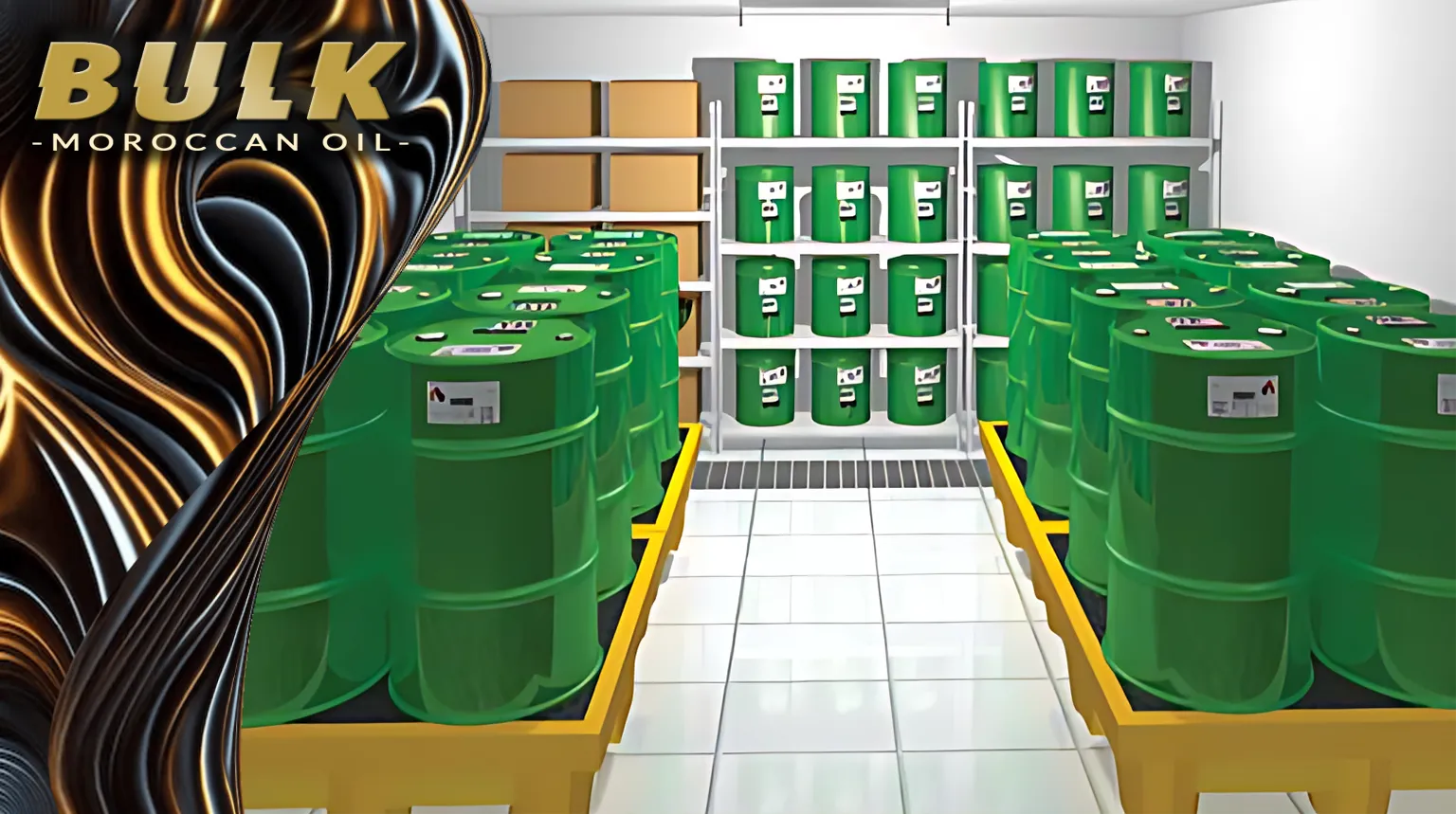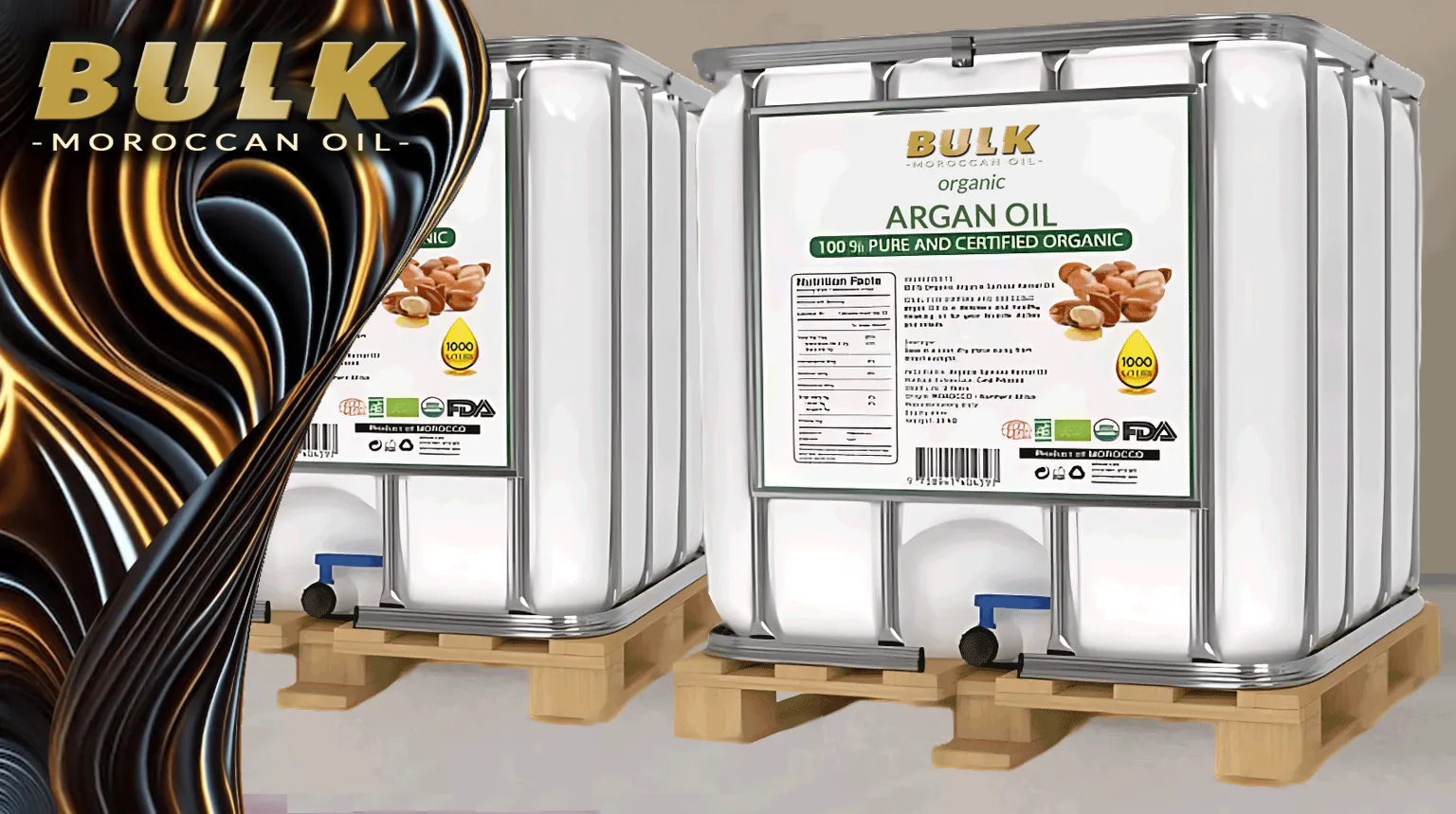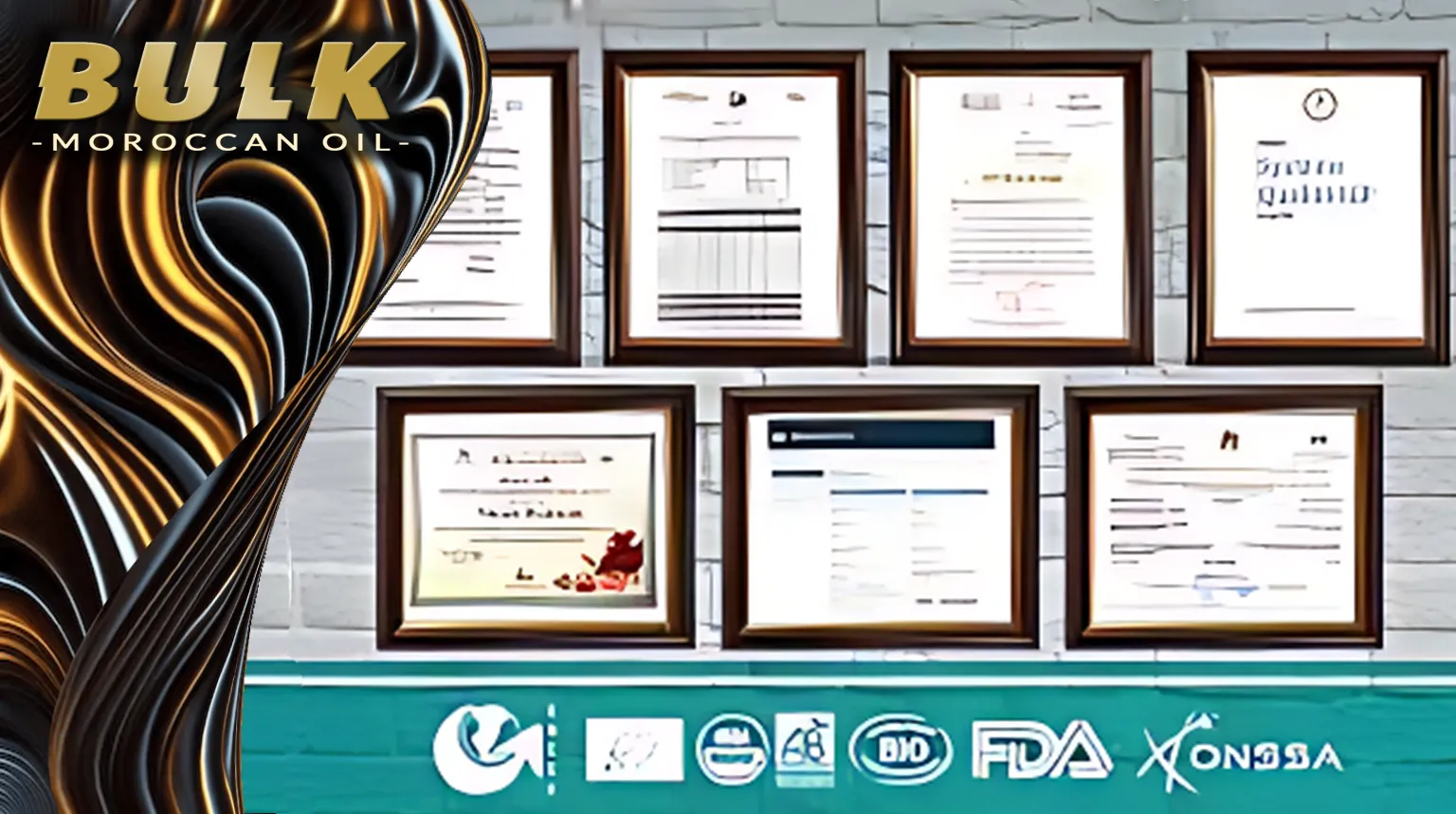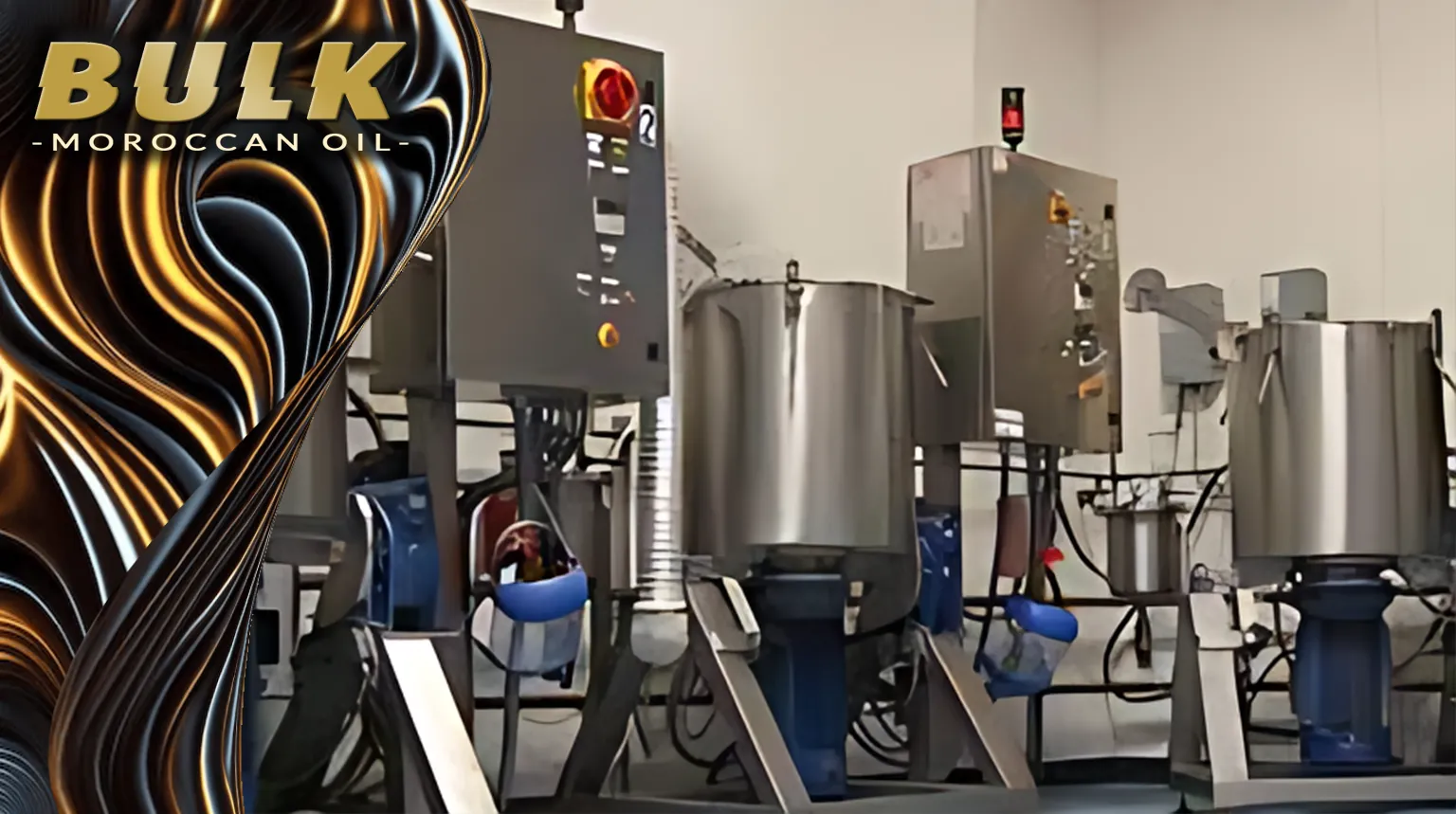How to Start a Wholesale Business: A Comprehensive Guide
Are you an entrepreneur looking to start a business that can generate a profit? Starting a wholesale business can be an excellent choice for you. As a wholesaler, you provide products to other companies for a profit. However, creating a wholesale business can be overwhelming, considering many factors—financial planning, business plan, sourcing items, finding suitable space, and more. But don't worry! This article is here to guide you through starting a wholesale business and help you organize your thoughts and plans effectively.
Key Points:
- Wholesale business
- Start a wholesale business
- Steps to starting a wholesale
- Wholesale business from scratch
- Know about starting a wholesale
Content List:
- Becoming a distributor
- Understanding the Wholesale Business
- Planning Your Wholesale Business
- Sourcing Wholesale Products
- Setting Up Your Wholesale Business
- Understanding the Wholesale Pricing Model
- Marketing and Selling Wholesale Products
- Managing Operations and Logistics
- Expanding and Growing Your Wholesale Business
- Tips for Running a Successful Wholesale Business
- Conclusion and Key Takeaways
This blog is brought to you by BULK Moroccan Oil; Argan Oil Wholesale, your supplier for bulk Argan oil products.

1. Becoming A Distributor
Starting a wholesale business can open up various opportunities for entrepreneurs to make a profit in the thriving world of commerce. Wholesalers play a vital role in the supply chain by connecting manufacturers and suppliers with retailers. They buy products in bulk and sell them to retailers at a slightly higher price, enabling retailers to distribute these goods to consumers. This allows wholesalers to capitalize on economies of scale and generate substantial revenue.
However, venturing into the wholesale business requires careful planning and strategic execution. Thorough preparation is essential to navigate the intricacies of the industry successfully. A well-defined roadmap and a thorough market understanding will help you anticipate challenges and seize opportunities.
In this section, we will explore the critical aspects of starting a wholesale business to guide you on the path to success. We will delve into the necessary steps to establish your wholesale business, including planning, sourcing products, setting up operations, marketing, and expanding your business. Following these guidelines can lay a strong foundation for your wholesale business and position yourself for long-term growth.
Understanding the unique dynamics of the wholesale industry is crucial. From managing supply chains and inventory to determining competitive pricing, each facet plays a vital role in the overall success of your business. Furthermore, staying abreast of market trends, consumer demands, and technological advancements will help you stay ahead of the curve.
Throughout this guide, we will delve into specific subtopics, such as selecting suitable products to sell, building relationships with reliable suppliers, establishing an online presence, and effectively marketing your wholesale business. We will also address the challenges and opportunities that arise in running a wholesale business, including managing cash flow, expanding into new markets, and optimizing operations.
Whether you are attracted to the wholesale industry due to its potential for profitability, the opportunity to provide valuable services to retailers, or simply the thrill of entrepreneurship, this comprehensive guide will equip you with the necessary knowledge and tools to start and grow a successful wholesale business. By following the step-by-step advice provided, you can navigate the intricacies of the wholesale industry and set yourself up for long-term success.
Now, let's delve into the steps and considerations involved in starting and running a wholesale business.
2. Understanding the Wholesale Business
Before diving into the world of wholesale business, it's crucial to have a clear understanding of its fundamentals. This section explains what a wholesale business entails and differentiates it from distribution. We can establish a solid foundation for the subsequent sections by clarifying any confusion regarding these terms.
What is a Wholesale Business?
A wholesale business operates as an intermediary between manufacturers or suppliers and retailers. Wholesalers purchase large quantities from manufacturers or suppliers at a discounted price. They then sell these products in smaller quantities to retailers, who subsequently sell them to end consumers. The primary purpose of a wholesale business is to facilitate the efficient distribution of goods from the manufacturer to the retailer.
Wholesalers play a critical role in the supply chain, as the bridge connecting producers and retailers. They provide a range of services to retailers, including sourcing products, managing inventory, and offering competitive pricing. By purchasing products in bulk, wholesalers benefit from economies of scale, enabling them to negotiate lower prices and higher profit margins.
Additionally, wholesalers often provide value-added services such as storage, packaging, labeling, and sometimes even marketing support. This allows retailers to focus on their core competencies without the burden of managing the entire supply chain themselves.
Difference between Wholesale and Distribution
Though wholesale and distribution are often used interchangeably, they are not synonymous. Understanding the difference between these two concepts is crucial for clarifying the role of a wholesale business.
Wholesale:
As mentioned earlier, wholesalers act as intermediaries between manufacturers, suppliers, and retailers. They purchase goods in bulk and sell them to retailers at a profit. Their primary focus is on providing products to retailers, which they sell to end consumers. Wholesalers play a significant role in the B2B (business-to-business) market, catering to retailers and other businesses.
Distribution:
On the other hand, distribution refers to the process of getting products from the manufacturer or wholesaler to the end consumer. It involves the physical movement of goods and the management of inventory, warehousing, and logistics. Wholesalers can facilitate distribution, but it is not exclusive to them. Retailers and other businesses can also engage in distribution activities by managing their own supply chain operations.
Wholesale business primarily focuses on buying and selling goods in large quantities, while distribution encompasses getting products to the end consumer.
Understanding wholesale and distribution is crucial for effectively positioning your business in the market. As a wholesale business owner, you will primarily be concerned with sourcing and selling products in bulk to retailers.
However, it's important to recognize that distribution elements, such as inventory management and logistics, are also integral parts of running a successful wholesale business.
Now that we have clarified the fundamentals of the wholesale business, let's move on to the next section, where we will delve into the planning process for starting your own wholesale business.
3. Planning Your Wholesale Business
Planning is a critical step in starting a successful wholesale business. It helps you clarify your goals, identify potential challenges, and develop effective strategies. This section will emphasize the importance of planning and guide you on developing a comprehensive business plan for your wholesale business. We will also stress the significance of identifying your target market, analyzing suppliers, and obtaining the necessary legal documents and licenses.
Importance of Planning
Proper planning is the foundation of a successful wholesale business. It allows you to envision the future direction of your business and sets the roadmap for achieving your goals. By taking the time to plan, you can anticipate potential obstacles and devise strategies to overcome them.
A comprehensive business plan is a crucial component of your planning process. It outlines your business objectives, target market, competitive analysis, marketing strategies, financial projections, and more. A well-crafted business plan helps you stay focused on your long-term vision and is a valuable tool when seeking funding or attracting potential partners.
Developing a Business Plan
A business plan serves as a blueprint for your wholesale business. It provides a detailed overview of your business, its objectives, and how you plan to achieve them. Here are key elements to include in your business plan:
1. Executive Summary:
This section provides an overview of your wholesale business, highlighting its key features, unique selling points, and value proposition. It should be concise yet compelling to capture the attention of potential investors or partners.
2. Business Description:
Describe your wholesale business in detail, including its mission, vision, and core values. Explain the products you plan to sell, your target market, and the competitive landscape.
3. Market Analysis:
Conduct thorough research to identify and analyze your target market. Understand the industry trends, customer preferences, and market demand for the products you plan to offer. Assess your competitors and identify opportunities to differentiate your business.
4. Marketing and Sales Strategies:
Outline your marketing and sales approach to attract customers and generate revenue. Define your pricing strategy, distribution channels, and promotional activities. Consider how you will reach your target market and create brand awareness.
5. Operational Plan:
Describe the operational aspects of your wholesale business, such as sourcing products, managing inventory, and order fulfillment. Discuss your approach to logistics, warehousing, and supply chain management. Outline the infrastructure and technology tools you will utilize to streamline operations.
6. Financial Plan:
Develop a comprehensive financial plan that includes startup costs, revenue projections, and potential expenses. Create a budget, cash flow statement, and profit and loss statement. Define your pricing strategy to ensure profitability while remaining competitive.
Identifying a Target Market
Identifying your target market is a crucial step in planning your wholesale business. Determine the types of retailers or businesses that would be interested in your products. Consider factors such as industry, location, size, and specific needs. This will help you tailor your marketing and sales strategies to effectively reach your target market.
Analyzing Suppliers
Finding reliable suppliers is essential for the success of your wholesale business. Research suppliers who offer the products you plan to sell and evaluate their quality, pricing, and delivery capabilities. Establish strong relationships with suppliers who can consistently meet your requirements and offer competitive terms.
Obtaining Legal Documents and Licenses
Complying with legal requirements is vital for operating a wholesale business. Ensure you obtain the necessary licenses, permits, and registrations required by your local jurisdiction. This may include a wholesale license, tax identification number, and any industry-specific certifications. Adhering to legal obligations from the start will help you avoid potential legal issues in the future.
By emphasizing the importance of planning and providing guidance on developing a comprehensive business plan, identifying a target market, analyzing suppliers, and obtaining legal documents and licenses, this section sets the stage for successfully launching your wholesale business. In the next section, we will delve into the process of sourcing wholesale products and finding reliable suppliers.

4. Sourcing Wholesale Products
Choosing the right suppliers and manufacturers is critical for the success of your wholesale business. This section will provide valuable insights into finding suitable suppliers, understanding the benefits of direct sourcing, and building strong relationships with suppliers to secure reliable and cost-effective products.
Finding Suitable Suppliers
Finding suppliers that align with your business goals and values is important when sourcing wholesale products. Here are some strategies to help you find suitable suppliers:
1. Research Online:
Utilize online directories, wholesale marketplaces, and trade platforms to discover suppliers within your industry. Look for those that specialize in the products you plan to sell and have a good reputation.
2. Attend Trade Shows:
Trade shows and industry events can be excellent opportunities to connect with suppliers directly. These events bring together manufacturers, wholesalers, and retailers, allowing you to explore various products and establish face-to-face relationships.
3. Network:
Engage with industry professionals, join relevant industry associations, and participate in online communities and forums. Networking can lead to valuable connections and recommendations for reliable suppliers.
4. Get Referrals:
Reach out to other wholesale business owners or retailers and seek their recommendations for reputable suppliers. Referrals from trusted sources can help you find reliable partners.
Benefits of Direct Sourcing
Direct sourcing refers to purchasing products directly from manufacturers or bypassing intermediaries. There are several benefits to direct sourcing:
1. Cost Savings:
You can negotiate better prices with manufacturers by eliminating intermediaries and enjoy higher profit margins. Direct sourcing allows you to cut out additional expenses associated with middlemen.
2. Product Customization:
You can request product customization or develop private-label products when working directly with manufacturers. This can help you differentiate your wholesale business and cater to specific customer needs.
3. Quality Control:
Direct communication with manufacturers allows you to ensure the quality and consistency of the products you are sourcing. You can establish clear quality standards and monitor production processes closely.
4. Faster Response and Flexibility:
Dealing directly with manufacturers enables quicker response times and increased flexibility. You can easily adapt to market trends, change product specifications, or adjust order quantities.
Building Strong Relationships with Suppliers
Building strong relationships with your suppliers is crucial for long-term success in the wholesale business. Here are some strategies to foster positive connections:
1. Open and Clear Communication:
Maintain regular communication with your suppliers to establish trust and clarity. Clearly communicate your expectations, product requirements, and delivery schedules. Address any concerns promptly and maintain transparency.
2. Consistent Orders and Payments:
Demonstrate reliability by placing consistent orders and making timely payments to suppliers. This helps build trust and strengthens your business relationship.
3. Collaboration and Feedback:
Collaborate with your suppliers to improve products and processes. Provide constructive feedback and suggestions for continuous improvement. This collaborative approach can lead to mutually beneficial outcomes.
4. Long-Term Partnerships:
Seek to establish long-term partnerships with your suppliers rather than constantly switching providers. Building strong relationships can lead to better terms, preferential treatment, and access to exclusive products.
By focusing on finding suitable suppliers, understanding the benefits of direct sourcing, and building strong relationships, you can ensure a reliable supply of quality products for your wholesale business. In the next section, we will explore the process of setting up your wholesale business and establishing a strong online presence.
5. Setting Up Your Wholesale Business
Establishing a strong foundation for your wholesale business is crucial for long-term success. This section will cover important aspects that will contribute to the foundation of your business, including choosing an appropriate business name, establishing a robust online presence, developing an effective inventory management system, and integrating technology tools like ERP systems to streamline operations.
Choosing an Appropriate Business Name
Selecting a suitable business name for your wholesale business is essential as it represents your brand and creates a lasting impression on customers and partners. Here are some tips to consider when choosing a business name:
1. Reflect Your Brand:
Your business name should align with your brand identity and your products. It should evoke a sense of professionalism, credibility, and trustworthiness.
2. Easy to Remember and Spell:
Choose a name that is easy to remember and spell. This will make it easier for customers to find your business online and refer others to it.
3. Unique and Distinctive:
Ensure that your business name is unique and distinctive, standing out from competitors in the market. Conduct a thorough search to avoid any trademark or copyright infringement.
Establishing an Online Presence
In today's digital age, establishing a strong online presence is essential for the success of your wholesale business. Here are key steps to consider:
1. Create a Professional Website:
Develop a user-friendly and visually appealing website that showcases your products and services. Ensure the website is mobile-responsive, as a significant portion of online traffic comes from mobile devices.
2. Optimize for Search Engines:
Implement search engine optimization (SEO) strategies to enhance your website's visibility in search engine rankings. Conduct keyword research and optimize your website's content to attract organic traffic.
3. Utilize E-Commerce Platforms:
Consider using e-commerce platforms that cater specifically to wholesale businesses. These platforms often provide features such as wholesale pricing, bulk ordering, and customer management tools to streamline your operations.
4. Engage in Social Media Marketing:
Leverage popular social media platforms to engage with your target audience, build brand awareness, and drive traffic to your website. Choose the platforms that align with your target market and develop a strategic social media marketing plan.
Developing an Effective Inventory Management System
Efficient inventory management is crucial for a smooth operation in the wholesale business. Here are some tips for developing an effective inventory management system:
1. Categorize and Organize Products:
Group your products into categories and assign unique identifiers to each item. This will help in tracking and managing your inventory more efficiently.
2. Set Reorder Points:
Determine the minimum stock level for each product and establish reorder points. This ensures that you replenish inventory in a timely manner to avoid stockouts.
3. Utilize Inventory Management Software:
Invest in inventory management software that can streamline your inventory tracking, order processing, and stock replenishment. This software can provide real-time visibility into your inventory levels, automate reordering, and generate reports to help you make informed decisions.
Integrating Technology Tools like ERP Systems
Integrating technology tools like Enterprise Resource Planning (ERP) systems can significantly streamline your wholesale business operations. Here's how ERP systems can benefit your business:
1. Centralized Data Management:
ERP systems enable you to centralize all your business data, including inventory, customer information, sales data, and financial records. This allows for efficient data management and easy access to critical information.
2. Streamlined Processes:
ERP systems automate various processes such as order management, invoicing, and accounting. This reduces manual errors, improves efficiency, and enhances overall productivity.
3. Enhanced Collaboration:
With ERP systems, different departments within your business can access and share information seamlessly. This fosters collaboration and improves communication across teams.
4. Data Analytics and Reporting:
ERP systems provide robust reporting and data analytics capabilities, allowing you to gain deeper insights into your business performance. This enables informed decision-making and helps you identify areas for improvement.
By focusing on these crucial aspects of setting up your wholesale business, such as choosing an appropriate business name, establishing a strong online presence, developing an effective inventory management system, and integrating technology tools like ERP systems, you can lay a solid foundation for your operations. In the next section, we will explore the various aspects of pricing strategies in the wholesale business.

6. Understanding the Wholesale Pricing Model
Determining the appropriate wholesale pricing for your products is a critical aspect of running a successful wholesale business. This section will guide you on setting wholesale prices, calculating profit margins, and managing cash flow effectively.
Setting Wholesale Prices
Setting wholesale prices requires careful consideration of various factors to ensure profitability while remaining competitive in the market. Here are some key considerations when setting wholesale prices:
1. Cost of Goods:
Calculate the cost of acquiring the products from suppliers, including manufacturing or production costs, shipping fees, import duties, and any additional expenses. This forms the base cost for determining the wholesale price.
2. Overhead Expenses:
Factor in overhead expenses such as rent, utilities, employee salaries, marketing costs, and any other operational expenses. Distribute these expenses across your products to determine the share to be included in the wholesale price.
3. Profit Margin:
Determine the desired profit margin for your wholesale business. Consider industry standards, market conditions, and business goals when determining the profit margin percentage.
4. Competitive Analysis:
Research and analyze the pricing strategies of your competitors. This will help you understand the market dynamics and ensure that your wholesale prices are competitive.
5. Value Proposition:
Consider the unique value proposition of your products and the added services or benefits you provide to retailers. Adjust your pricing accordingly to reflect the value you bring to the market.
Calculating Profit Margins
Calculating profit margins is essential to ensure the profitability of your wholesale business. Here's a simple formula to calculate profit margins:
Profit Margin = (Wholesale Price - Cost of Goods) / Wholesale Price * 100
This formula helps you determine the percentage of profit you earn on each wholesale transaction. It is essential to monitor and adjust your profit margins based on market conditions, cost fluctuations, and changes in your business strategy.
Managing Cash Flow
Cash flow management is vital for the smooth operation of your wholesale business. Here are some tips for managing cash flow effectively:
1. Evaluate Payment Terms:
Negotiate payment terms with your suppliers that align with your cash flow requirements. Strive to extend payment terms with suppliers while ensuring that you can offer reasonable terms to your customers.
2. Monitor Receivables:
Keep a close eye on customer payments and promptly follow up on overdue invoices. Implement efficient accounts receivable processes to minimize late payments and maintain a healthy cash flow.
3. Forecast and Budget:
Develop a cash flow forecast and budget to accurately project your income and expenses. This will help you identify potential cash flow gaps and proactively mitigate any shortfalls.
4. Maintain Adequate Reserves:
Set aside a portion of your revenues as a contingency fund to manage unexpected expenses or disruptions in your supply chain. Having adequate reserves ensures that your business can weather any financial challenges that may arise.
5. Review Inventory Management:
Optimize your inventory management practices to avoid excess stock that ties up your cash flow. Regularly review your inventory levels, track product demand, and adjust your purchasing patterns accordingly to maintain a healthy cash flow.
By understanding the wholesale pricing model, calculating profit margins accurately, and managing your cash flow effectively, you can ensure your wholesale business's financial stability and long-term success. The next section will explore marketing and selling strategies to attract customers to your wholesale business.
7. Marketing and Selling Wholesale Products
To attract customers and achieve growth in your wholesale business, it is crucial to implement effective marketing and sales strategies. This section will explore marketing techniques, building relationships with retailers and resellers, utilizing B2B platforms, and participating in trade shows and industry events.
Understanding the Importance of Marketing and Sales
Marketing and sales are vital in promoting your wholesale business and generating revenue. Here are key strategies to consider:
1. Define Your Target Audience:
Identify your target market and understand their needs, preferences, and buying behaviors. This will enable you to tailor your marketing efforts to reach potential customers effectively.
2. Develop a Strong Brand Identity:
Create a compelling brand identity that resonates with your target audience. Establish a clear value proposition, design a visually appealing logo and website, and develop consistent branding across all marketing channels.
3. Utilize Online Marketing Channels:
Leverage digital marketing techniques to enhance your online presence. This includes search engine optimization (SEO), social media marketing, content marketing, email marketing, and paid advertising. Be sure to optimize your website for search engines and engage with your audience through social media platforms.
4. Build Relationships with Retailers and Resellers:
Cultivate strong relationships with retailers and resellers who can distribute your products. Offer competitive pricing and exceptional customer service, and collaborate closely with your partners to drive mutual success.
5. Utilize B2B Platforms:
Explore B2B platforms and online marketplaces that connect wholesalers with retailers and resellers. These platforms provide a convenient way to showcase your products, reach a wider audience, and streamline the ordering and fulfillment process.
6. Participate in Trade Shows and Industry Events:
Attend trade shows and industry events relevant to your product niche. These events offer opportunities to showcase your products, network with potential customers and partners, and stay updated on industry trends and developments.
7. Conduct Market Research:
Continuously conduct market research to stay informed about market trends, competitor activities, and changing customer demands. This will help you identify new opportunities, refine your marketing strategies, and adapt your product offerings accordingly.
Maximizing Profit Margin and Ensuring Financial Success
In addition to marketing efforts, maximizing profit margins and ensuring financial success in your wholesale business is crucial. Here are some strategies to consider:
1. Monitor Profit Margins:
Regularly review and analyze your profit margins to ensure they align with your business goals. Identify areas where you can increase efficiencies or negotiate better pricing with suppliers to improve margins.
2. Optimize Pricing Strategies:
Continuously evaluate your pricing strategies to find the right balance between profitability and competitiveness. Consider factors such as market demand, customer perception, and production costs when determining your pricing.
3. Manage Cash Flow Effectively:
Implement sound cash flow management practices to ensure sufficient funds are available for operational expenses and growth initiatives. Maintain a healthy cash flow by monitoring receivables, managing inventory efficiently, and negotiating favorable payment terms with suppliers.
4. Continuously Improve Business Processes:
Regularly assess and enhance your business processes to improve efficiency and reduce costs. Identify areas where automation or technology integration can streamline operations and increase productivity.
You can drive growth and profitability in your wholesale business by implementing effective marketing and sales strategies and maximizing profit margins while ensuring financial success. The next section will explore the importance of efficient operations and logistics in running a successful wholesale business.

8. Managing Operations and Logistics
Efficiently managing operations and logistics is crucial for the success of a wholesale business. This section will provide practical advice on order processing and fulfillment, optimizing supply chain management, as well as handling shipping and delivery processes smoothly.
Order Processing and Fulfillment
Efficient order processing and fulfillment are essential to ensure customer satisfaction and timely delivery of products. Consider the following practices to streamline your order processing:
1. Implement Order Management Systems:
Utilize order management systems or software to automate and streamline the order processing workflow. This includes managing orders, tracking inventory, generating invoices, and updating customer information.
2. Standardize Order Processing Procedures:
Establish standardized procedures for receiving, processing, and fulfilling orders. Clearly define roles and responsibilities within your team to ensure accuracy and timely execution.
3. Prioritize Inventory Management:
Maintain accurate inventory records and track stock levels regularly. Implement strategies such as Just-in-Time (JIT) inventory management or real-time inventory tracking to avoid stockouts and overstocking.
4. Streamline Communication Channels:
Facilitate seamless communication between different departments involved in order processing, including sales, warehouse, and shipping. Use collaboration tools or software to ensure effective communication and coordination.
Supply Chain Management Optimization
Optimizing your supply chain management is crucial for maintaining an efficient wholesale business. Consider the following strategies to enhance your supply chain:
1. Build Strong Relationships with Suppliers:
Establish strong partnerships with reliable suppliers to ensure timely and consistent product availability. Collaborate closely with your suppliers, communicate regularly, and share forecasted demand to facilitate smoother supply chain operations.
2. Implement Inventory Replenishment Strategies:
Utilize demand forecasting techniques and historical sales data to optimize inventory replenishment. Implement strategies such as Economic Order Quantity (EOQ) or Vendor-Managed Inventory (VMI) to balance inventory levels and minimize stockouts or excess inventory.
3. Opt for Efficient Warehousing:
Organize your warehouse for maximum efficiency, ensuring easy access, proper labeling, and effective space utilization. Utilize warehouse management systems or software to track inventory, manage storage, and streamline warehouse operations.
4. Monitor Key Performance Indicators (KPIs):
Track and analyze key performance indicators such as order fulfillment time, delivery accuracy, and inventory turnover. This will help identify areas for improvement and enable data-driven decision-making.
Shipping and Delivery Management
Efficient shipping and delivery management are critical for customer satisfaction. Consider the following practices to streamline your shipping processes:
1. Choose Reliable Shipping Partners:
Establish relationships with reliable shipping carriers or logistics providers to ensure timely and cost-effective deliveries. Evaluate carrier options based on factors such as service quality, pricing, and coverage.
2. Optimize Packaging and Labeling:
Utilize appropriate packaging materials to protect products during transit and minimize chances of damage. Ensure accurate and clear labeling to facilitate smooth transportation and minimize errors.
3. Offer Multiple Shipping Options:
Provide customers with various shipping options to cater to their specific needs. Consider offering expedited shipping, free shipping thresholds, or international shipping options to enhance customer satisfaction and attract more buyers.
4. Track Shipments and Provide Updates:
Utilize shipment tracking systems or provide tracking numbers to customers so they can monitor the progress of their orders. Communicate any delays or issues proactively to manage customer expectations.
You can ensure smooth operations and enhance customer satisfaction in your wholesale business by focusing on efficient order processing, optimizing supply chain management, and streamlining shipping and delivery processes. The next section will explore strategies for expanding and growing your wholesale business.
9. Expanding and Growing Your Wholesale Business
To ensure your wholesale business's long-term growth and profitability, thinking beyond the initial setup is necessary. This section will discuss strategies for adding new product lines and services, increasing marketing efforts, opening new locations, and hiring employees to expand operations.
Adding New Product Lines and Services
Expanding your product offerings can attract new customers and increase revenue streams. Consider the following approaches to add new product lines:
1. Market Research:
Conduct thorough market research to identify trends and consumer demands. Look for product gaps or areas where your target market has unmet needs. This will help you determine which new product lines or services to introduce.
2. Analyze Competitors:
Study your competitors to understand their product offerings and identify areas where you can differentiate yourself. Look for untapped niches or opportunities where you can provide unique solutions or value.
3. Supplier Relationships:
Leverage your existing supplier relationships and explore if they offer additional products that align with your business. Building strong partnerships with trusted suppliers can give you access to a wide range of new product options.
4. Customer Feedback:
Listen to your customers and gather feedback to understand their needs and preferences. Take their suggestions into consideration when researching and selecting new product lines. This will help ensure that the products you introduce are in demand.

Increasing Marketing Efforts
Expanding your marketing efforts can help you reach new customers and increase brand awareness. Consider the following strategies:
1. Digital Marketing:
Invest in digital marketing channels such as search engine optimization (SEO), social media advertising, email marketing, and content marketing. Target specific audience segments and tailor your messaging to address their pain points and interests.
2. Paid Advertising:
Consider utilizing paid advertising platforms such as Google Ads or social media ads to increase visibility and reach a broader audience. Set clear objectives for your campaigns and track their performance to ensure optimal return on investment.
3. Influencer Marketing:
Collaborate with influencers or industry experts with a strong online presence and a relevant audience. Partnering with influencers can help you amplify your brand message and reach new customers.
4. Content Marketing:
Create informative and engaging content that educates your target audience about your products and industry. Publish blog posts, videos, or infographics that provide value to your customers and establish your brand as an industry authority.
Opening New Locations
Expanding into new geographical locations can help you tap into new markets and increase your customer base. Consider the following steps when opening new locations:
1. Market Analysis:
Conduct a thorough analysis of the new market to understand its demographics, competition, and regulatory requirements. Determine if there is a demand for your products in the new location.
2. Site Selection:
Choose a location that is easily accessible for your target customers and provides sufficient space for your operations. Consider factors such as proximity to suppliers, transportation networks, and local business regulations.
3. Adaptation to Local Preferences:
Tailor your product offerings and marketing strategies to cater to the preferences and needs of the local market. Customize your messaging and promotions to resonate with the new audience.
Hiring Employees
As your wholesale business grows, you may need to hire additional employees to support your operations. Consider the following when hiring new team members:
1. Determine Job Roles:
Identify the specific roles and responsibilities you need to fill based on the growing needs of your business. This may include sales representatives, operations staff, customer service personnel, or warehouse managers.
2. Skills and Experience:
Define the skills and experience required for each role. Look for individuals with experience in the wholesale or relevant industries and the necessary skills to contribute to your business's growth.
3. Recruitment and Onboarding:
Implement an effective recruitment process to attract top talent. Conduct thorough interviews, check references, and provide thorough training and onboarding to ensure new employees are set up for success.
Expanding and growing your wholesale business requires strategic thinking and proactive efforts. By adding new product lines and services, increasing marketing efforts, opening new locations, and hiring the right employees, you can position your business for long-term success. In the next section, we will summarize the key takeaways and provide a conclusion to this comprehensive guide on starting and growing a wholesale business.
10. Tips for Running a Successful Wholesale Business
Running a successful wholesale business requires dedication, adaptability, and the implementation of effective strategies. In this section, we will provide valuable tips and best practices to help you navigate challenges and ensure the success of your wholesale business. These tips cover building trust with customers and suppliers, delivering excellent customer service, and adhering to legal and regulatory requirements.
1. Build Trust with Customers and Suppliers:
Trust is the foundation of successful business relationships. Nurture open and honest communication with your customers and suppliers. Deliver on your promises, be transparent, and consistently provide high-quality products and services.
2. Prioritize Excellent Customer Service:
Exceptional customer service sets you apart from competitors and fosters customer loyalty. Respond promptly to inquiries, resolve issues efficiently, and go the extra mile to meet customer needs. Aim to exceed customer expectations and create a positive buying experience.
3. Adhere to Legal and Regulatory Requirements:
Stay up-to-date with the legal and regulatory requirements that apply to your wholesale business. Ensure compliance with licensing, permits, taxes, data privacy, product safety, and labeling laws. Non-compliance can have serious consequences, so seek legal advice if necessary.
4. Monitor and Adapt to Market Trends:
Continuously monitor industry trends, consumer preferences, and changes in the market. Stay informed about emerging technologies, customer demands, and shifts in the competitive landscape. Adapt your strategies, products, and services to stay ahead of the curve.
5. Foster Strong Relationships:
Cultivate strong relationships with both customers and suppliers. Regularly check in, listen to their feedback, and collaborate to find mutually beneficial solutions. Nurturing these relationships can lead to long-term partnerships, increased customer satisfaction, and improved business outcomes.
6. Maintain Efficient Operations:
Efficient operations are essential for running a successful wholesale business. Continuously assess your business processes, streamline operations, and seek opportunities for automation. Optimize your inventory management, order processing, and shipping procedures to enhance overall efficiency.
7. Embrace Technology Solutions:
Leverage technology tools and software to automate and streamline various aspects of your wholesale business. Implement inventory management systems, customer relationship management (CRM) software, and accounting platforms to enhance accuracy, productivity, and decision-making.
8. Stay Financially Informed:
Regularly monitor your financial performance, including sales revenues, expenses, and inventory management metrics. Conduct regular financial reviews, analyze key financial indicators, and adjust your strategies accordingly. Maintaining strong financial management is crucial for long-term success.
9. Continuously Learn and Adapt:
The business landscape constantly evolves, so continuously seek opportunities to learn and adapt. Stay informed about industry trends, attend conferences and workshops, and network with other professionals in your field. Embrace a growth mindset and be open to new ideas and strategies.
10. Innovate and Differentiate:
Look for opportunities to innovate and differentiate your wholesale business from competitors. Identify unique selling points, develop new product offerings, or explore niche markets. Continuously seek ways to add value to your customers and stand out in the industry.
By implementing these tips and best practices, you can enhance the success and sustainability of your wholesale business. Remember to stay flexible, adapt to changes, and always prioritize the needs of your customers and suppliers. In conclusion, running a successful wholesale business requires ongoing effort, continuous improvement, and a customer-centric approach.
11. Conclusion and Key Takeaways
In the final section, we will summarize the key points covered in the article and provide readers with a clear idea of what they need to remember when starting and running a thriving wholesale business.
Key Point Summary:
- Understand the basics of the wholesale business, including the difference between wholesale and distribution.
- Plan your wholesale business thoroughly, including developing a business plan and obtaining the necessary legal documents.
- Source reliable suppliers and establish strong relationships with them.
- Set up your wholesale business effectively, including choosing a business name, creating an online presence, and implementing an inventory management system.
- Understand the wholesale pricing model and manage cash flow.
- Implement effective marketing and sales strategies to attract customers.
- Manage operations and logistics efficiently, including order processing, supply chain management, and shipping.
- Expand your wholesale business by adding new product lines, increasing marketing efforts, and opening recent locations.
- Follow tips for running a thriving wholesale business, such as building trust and delivering excellent customer service.
- Ensure compliance with legal and regulatory requirements.
- Remember to plan, adapt, and stay dedicated to the growth of your wholesale business.
Hashtags:
Wholesale #WholesaleBusiness #StartWholesale #B2B #WholesaleStrategy #WholesaleSupply #BulkSales #BusinessGrowth #Entrepreneurship #SupplyChain #WholesaleDistribution #Retail #Ecommerce #BusinessTips #MarketTrends
Referrals:
- "8 Steps to Starting a Wholesale Business" | Fleximize
- "How to Start a Wholesale Business" | NerdWallet
- "How to Start up a Wholesaling Business" | Start Up Donut
- "11 Important Things To Know Before Starting A Wholesale Business" | Contrado Blog
- "How to Start a Wholesale Business" | Mint Formations
- "How to Start a Wholesale Business from Scratch (2023)" | Enterprise League Blog
- "How to Run a Wholesale Business: 8 Factors to Consider" | BlueCart Blog
- "How to Start a Wholesale Business: Tips and Tricks" | Sellbery
- "How to Start a Wholesale Business at Home" | Small Business - Chron.com
- "Starting a Wholesale Business from Home" | QuickBooks
Frequently Asked Questions (FAQ)
Q: What is a wholesale business and why should I start one?
A: A wholesale business involves selling goods in large quantities to retailers or other businesses. Starting a wholesale business can be lucrative as it allows you to buy products in bulk at lower prices and sell them at a profit.
Q: How do I start my own wholesale business?
A: To start your own wholesale business, you need to research the market, choose your niche, create a business plan, secure funding, find suppliers, set up an online store, and market your products effectively.
Q: What are some key steps to starting a wholesale business online?
A: Key steps to starting a wholesale business online include identifying a niche market, sourcing quality products, setting competitive pricing, building a user-friendly website, and implementing effective marketing strategies.
Q: How can a wholesale distributor help me in starting my business?
A: A wholesale distributor can provide you with access to a wide range of products, help you establish relationships with suppliers, offer competitive pricing, and assist in managing inventory and logistics for your business.
Q: What are some popular wholesale business ideas I can explore?
A: Some popular wholesale business ideas include selling electronics, fashion accessories, beauty products, home decor items, and health supplements. Choosing a niche that aligns with your interests and has good market potential is important.
Q: What is the importance of a solid business plan for a wholesale business?
A: A well-crafted business plan is essential for a wholesale business as it outlines your goals, target market, pricing strategy, sales projections, and budget. It serves as a roadmap to guide your business operations and attract investors.
Q: How can I attract customers to my wholesale business?
A: You can attract customers to your wholesale business by offering competitive pricing, providing excellent customer service, showcasing a wide range of quality products, leveraging social media and online marketing, and building strong relationships with retailers and businesses.
Q: How do I start a wholesale business?
A: To start a wholesale business, you must first research the market and define your niche. Then, create a business plan, secure financing, obtain necessary licenses, and establish supplier relationships.
Q: What are some wholesale business ideas?
A: Some wholesale business ideas include selling electronics, clothing, beauty products, home goods, or specialty foods in bulk to retailers or other businesses.
Q: Why is a business plan important for starting a wholesale business?
A: A business plan outlines your goals, strategies, target market, financial projections, etc. It serves as a roadmap for your business and can help attract investors or lenders.
Q: How can I attract customers to my wholesale business?
A: You can attract customers to your wholesale business by offering competitive pricing, quality products, excellent customer service, and effective marketing strategies such as online advertising or attending trade shows.
Q: What is the difference between a wholesaler and a distributor?
A: A wholesaler typically sells large quantities of goods to retailers or other businesses at a discounted price, while a distributor is responsible for managing the logistics of getting products from the manufacturer to the end customer.
Q: What are the steps to starting a wholesale business online?
A: The steps to starting a wholesale business online include setting up an e-commerce website, sourcing products, creating shipping and return policies, optimizing search engines, and promoting your online store through digital marketing.
Q: How can a wholesale business model benefit small businesses?
A: A wholesale business model allows small businesses to buy products in bulk at a discounted price, which can help lower their overall cost of goods sold and increase their profit margins when selling to their customers. It's relatively cheap to start to sell online. It's also important, if you want to sell, to know how to negotiate when you buy in bulk.
Q: How can starting a wholesale business benefit me?
A: Starting a wholesale business can benefit you in various ways, including the opportunity to buy products in bulk at lower prices and sell them for a profit, reach a larger market of retailers and consumers, and establish valuable relationships within the wholesale industry.
Q: What are the key steps to start your own wholesale business?
A: To start your own wholesale business, you need to research the market and industry, create a solid business plan, obtain any necessary licenses or permits, find reliable suppliers, set up your distribution network, and create a marketing strategy to attract customers.
Q: How important is it to buy wholesale for my business?
A: Buying wholesale is important for businesses looking to reduce costs, increase profit margins, and have a competitive edge compared to retail prices. It allows you to buy products in bulk and sell them at a higher price to generate revenue.
Q: What are some of the best wholesale items to sell?
A: The best wholesale items to sell often depend on market trends, consumer demand, and your target audience. Popular wholesale items include electronics, clothing, accessories, beauty products, and home goods.
Q: How can I attract customers to my wholesale business?
A: To attract customers to your wholesale business, you can offer competitive wholesale pricing, provide excellent customer service, showcase your product range effectively, network with retailers and other businesses, and utilize online marketing strategies to reach a wider audience.
Q: What are the common challenges faced when running a wholesale business?
A: Common challenges when running a wholesale business may include managing inventory effectively, dealing with fluctuations in demand, maintaining good relationships with suppliers, handling logistics and shipping, and staying updated on market trends and competition.
Q: How can I create a successful wholesale business plan?
A: To create a successful wholesale business plan, you must outline your business goals, target market, competitive analysis, marketing strategies, operational plan, financial projections, and growth strategies. A well-thought-out business plan can guide your decisions and help secure funding if needed.
Q: How can I find reputable wholesale companies to partner with?
A: You can find reputable wholesale companies to partner with by attending trade shows and industry events, networking with other businesses in your industry, conducting online research, asking for recommendations from other retailers, and reaching out directly to potential suppliers to discuss partnerships.























